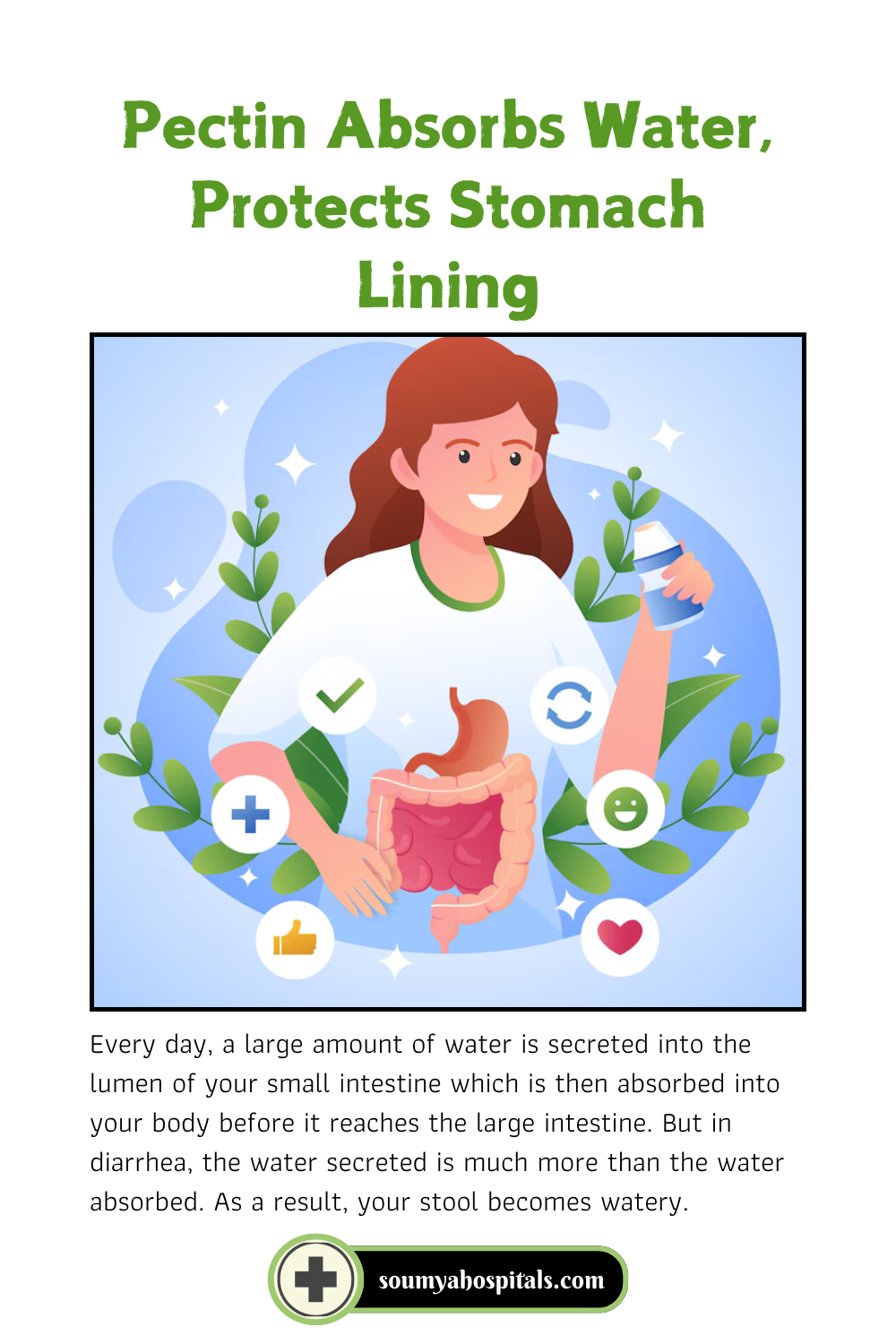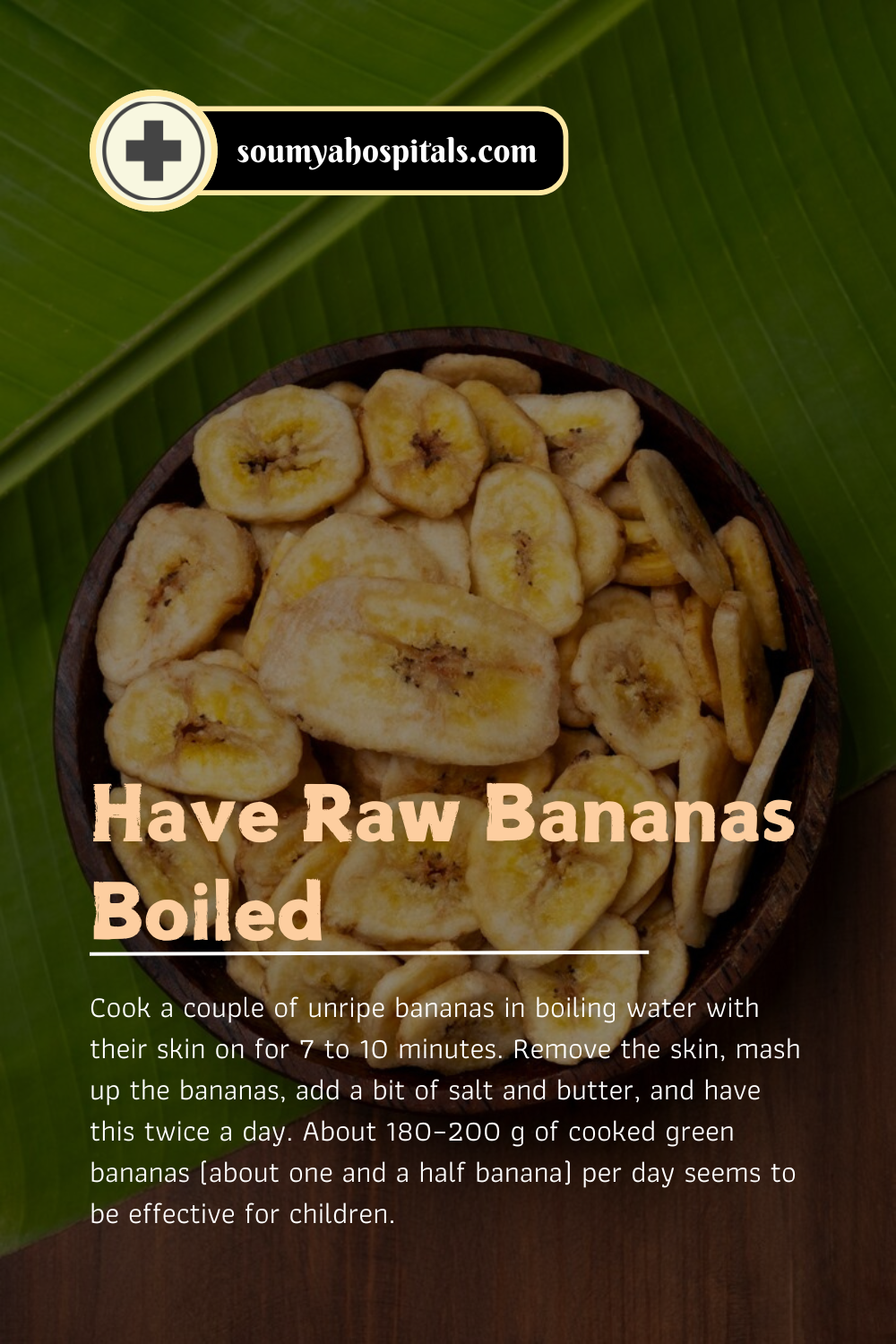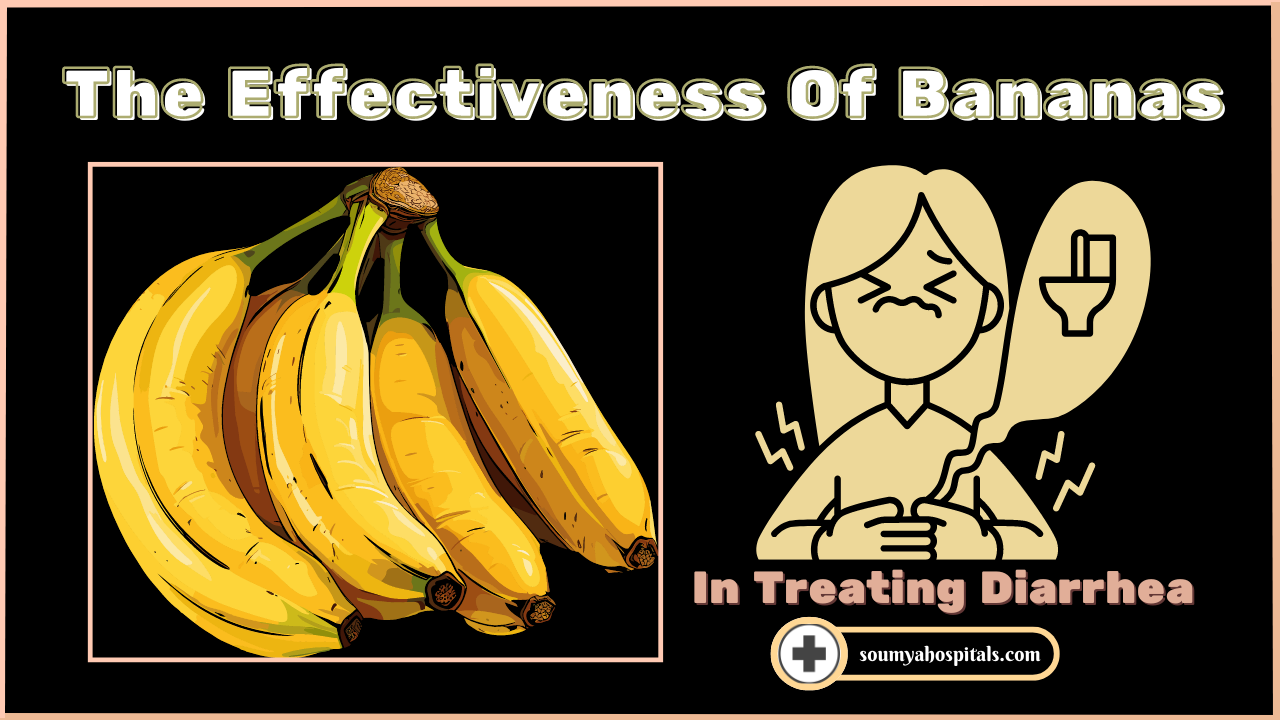If you’re advised BRAT diet for diarrhea, don’t scoff at it as an old wives’ tale. Research has found that bananas are even better than conventional medicines when it comes to helping you recover from loose motion.
Diarrhea Can Be A Serious Condition
Loose motion is what we call a gastrointestinal infection that is often caused by bacteria, viruses, or other parasitic organisms, lactose intolerance, irritable bowel syndrome, or Crohn’s disease and is characterized by frequent passing of watery stool, which can leave you dehydrated and exhausted.
Any more than two trips to the loo to pass watery stool, your loose motion can be classified as diarrhea. Diarrhea can even be life-threatening, especially in children and the elderly or if you are malnourished or have a weak immune system.
WHO finds that nearly 1.7 billion cases of diarrhea are reported every year, and UNICEF reports that diarrhea was a leading child killer across the world, accounting for about 9 percent of all death of children under the age of 5, in 2015. To give you a clearer picture, this means that every day, about 1,400 children around the world are dying of diarrhea.
Adults in the United States have an episode of acute diarrhea at least once a year and children get it a couple of times a year on average.
How Do Bananas Help?
Bananas have many medicinal properties. A rare combination of proteins, vitamins, and minerals, this fruit is universally recognized as a source of instant energy. Because of its ideal potassium and sodium ratio (with more potassium than sodium), and dearth of fat and cholesterol, banana is good for keeping the blood pressure low and the heart healthy.
Whether it is constipation you are battling or diarrhea, bananas can help. While the ripe one is a remedy for constipation, the unripe one helps tackle diarrhea.
A study found that babies with diarrhea, when given cooked raw banana, started showing improvements about 24 hours after the treatment began. By the fifth day, almost all the babies who were given raw bananas had completely recovered while those in the control group, who did not have raw banana in their diet, continued to suffer from diarrhea for up to 10 days.
Pectin Absorbs Water, Protects Stomach Lining
Every day, a large amount of water is secreted into the lumen of your small intestine which is then absorbed into your body before it reaches the large intestine. But in diarrhea, the water secreted is much more than the water absorbed. As a result, your stool becomes watery.
Absorbing this excess water in the body becomes crucial in alleviating diarrhea. Green or unripe banana has a natural fibrous starch called pectin, which is not digested in the small intestine and is passed into the colon where it is fermented by bacteria into short chain fatty acids. These short chain fatty acids stimulate the absorption of salt and water in the colon, making the stool firmer.

The pectin also stimulates the production of mucus in the colon and small bowel, which serves as a barrier between the stomach lining and the acidic gastric substances that may trigger a stomach upset.
A study conducted on 31 critically ill, tube-fed diarrhea patients who received either banana flakes or medical treatment for the condition found that 57 percent of the subjects in the banana flakes group were diarrhea-free on the last day of the study as opposed to the mere 24 percent of the medically-treated subjects.
As this fiber changes into soluble sugar when the fruit ripens, ripe banana may not be as effective in relieving you of diarrhea.
Potassium Level Gets Replenished
Diarrhea makes you lose a lot of water and electrolytes from the body through loose stools. If the electrolytes and liquids are not replenished, it could lead to severe dehydration. The electrolyte balance in the body is, in turn maintained by potassium, which allows your muscles to contract and your nervous system to transmit impulses. According to data provided by the international non-profit Rehydration Project, the total potassium deficit in children with severe dehydration due to diarrhea is in the range of about 10,000 millimoles.
Given that a medium-sized raw banana contains about 422 mg of potassium, as per a United States Department of Agriculture report, consuming the fruit can help replenish the potassium levels and restore the electrolyte balance in the body.
Fructose Increases Good Bacteria
Bananas are rich in fibers like cellulose, hemicellulose, and alphaglucans that help regulate bowel activity. But one important ingredient in the fruit is a prebiotic compound called fructooligosaccharide (FOS), or oligofructan, a short-chain polymer of fructose. It nourishes the probiotic or the good bacteria in the colon and increases their number compared with the bad, diarrhea-causing bacteria.
These good bacteria are the ones that produce digestive enzymes and vitamins that help absorb nutrients from food and also protect us from foreign, unfriendly microorganisms.
This is where a treatment with a banana diet scores over antibiotics, which are always associated with the risk of harming the beneficial colon bacteria.
Bananas Help Absorb Nutrients
Diarrhea also leads to a lack of nutrient absorption, but this can be fixed with raw bananas, which aid in nutrient absorption. In a study published in the Digestive Diseases and Sciences journal, 57 baby boys below the age of 1, with persistent diarrhea were given a week’s treatment with a rice-based diet containing either green banana, apple pectin, or just the rice diet alone. The green banana and apple pectin groups showed a 50 percent reduction in stool weights, indicating that the babies were absorbing significantly greater amount of nutrients.
Another study also found that bananas increase the body’s ability to absorb calcium for stronger bones and other body functions.
Bananas Restore Energy And Body Weight
Diarrhea is exhausting and when you have it, you lose not only a lot of water but also energy and body weight. Banana is one of the most effective foods to gain this energy back, say studies. Just 100 grams of ripe banana promises around 116 kcal energy.
A study published in the Journal of the American College of Nutrition found that a green plantain–based diet administered to children with persistent diarrhea led to a significant decrease in diarrhea and a marked increase in their body weight.
Another study conducted at the Department of Pediatry of the University of Maryland had similar findings and concluded that administering a banana-based diet helped maintain body weight of children affected with persistent diarrhea besides helping manage the condition better.
How To Have Bananas To Treat Diarrhea
Now that you know bananas are effective in keeping loose motions at bay, it is important to understand that having the fruit in a random way is not going to help the cause. Also, remember that it will take about 24 hours for the fruit’s effect to show.
Have Raw Bananas Boiled
Cook a couple of unripe bananas in boiling water with their skin on for 7 to 10 minutes. Remove the skin, mash up the bananas, add a bit of salt and butter, and have this twice a day.
About 180–200 g of cooked green bananas (about one and a half banana) per day seems to be effective for children.

Have 1–2 Tbsps Dry Banana Flakes
You could also try dry banana flakes—about one or two tablespoons of dried banana flakes, with 6.25 gm of carbohydrates and 0.5 gm of fiber per tablespoon, every 8 hours has been found to work for adults.
Have Pureed Ripe Banana On Toast
Although ripe banana is not usually considered a cure for diarrhea, a study mentions that to increase the effectiveness of the fruit for diarrhea, you can even puree a small amount of ripe banana, add a teaspoon of honey to it, and spread it on a well-done toast. The toast will help absorb excess fluids in the gastrointestinal tract and also help solidify stools.
But Don’t Stick To Just The BRAT Diet
But while the BRAT diet or the banana, rice, applesauce, and toast diet is a commonly recommended diarrhea diet, many studies advise caregivers to stay away from such restrictive diets as they may impair nutritional recovery and lead to severe malnutrition.
Bananas can be your savior during painfully exhausting bouts of diarrhea. But to prevent diarrhea, you can eat clean, keep your body hydrated, and maintain a good level of hygiene.
